How come there is no power socket in the middle of the field?
After we solved getting internet uplink connection working we needed to tackle one other big issue - power.
We take power (and most things) for granted, but we found our the hard way that during crisis events you can't rely on having power. And sometimes you have to provide Internet in the middle of the field, and there are no power sockets in the middle of the field.
So even when we got Internet connection up and we could get out mobile hotspots to share the Internet we would run out of batteries after few hours and would need to swap them out.
So we were thinking on using solar power but because we were in the field all the time we got in person with minister of Internal affairs and he allowed us to setup hotspots inside refugee camp.
So we were looking how and where to install out devices, and first location that looked promising were light poles.
Light poles were great location because by installing 12 hotspots on 4 towers we could cover whole refugee camp.
But there was one big drawback, light poles had power only during the night, so during the day when most people would like to gave Internet connectivity we wouldn't have power.
Of course we knew that devices such as UPS exist, but we decided UPS are not a good solution because of these reasons:
- we couldn't afford ones we needed (ones with 4 batteries, which are really expensive)
- we couldn't source high capacity UPS locally or in short time
- UPS converts DC to AC and this conversion has up to 40% loss of energy
- UPS aren't build to be used outdoor
So we started to build 24V (most outdoor wifi devices use 24V POE power supply) DIY power solution from this parts:
- 24V car battery charger
- 4x 7Ah 12V batteries (ones used for UPS and scooters)
- Arduino based voltage and temperature monitor connected to OpenWrt router via serial connection
- big plastic box
- 8cm thick sheets of styrofoam for isolation
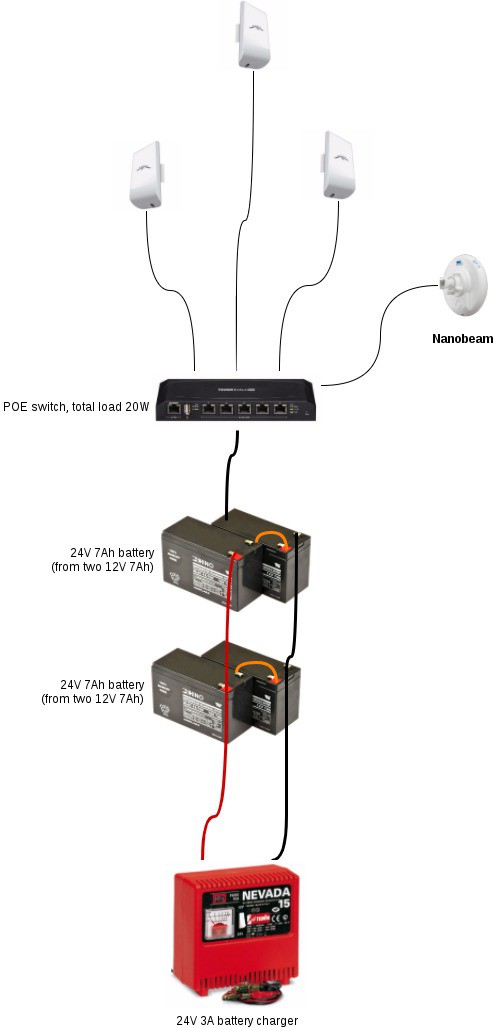
Batteries were connected two in series and two pairs in parallel. We didn't have time (nor money) to add or build proper over and under-voltage protection for batteries, but what we did was to carefully balance (with additional calculation and measurement) that batteries will hold this load and that charger will properly charge but not over charge batteries and that wifi devices won't over use and under voltage batteries.
This system worked for all 8 months that refugee camp was operational. We have only one tower fail after few months, but others worked without any issue all this time.
Hackerspace heroes to the rescue
I co-founded #labOS hackerspace in my home town and when saw that there is no way I can build all that is needed in 3 days I knew that only was I was going to make it is with lots of additional help.
When I asked people from out hackerspace to help out me response was overwhelming.
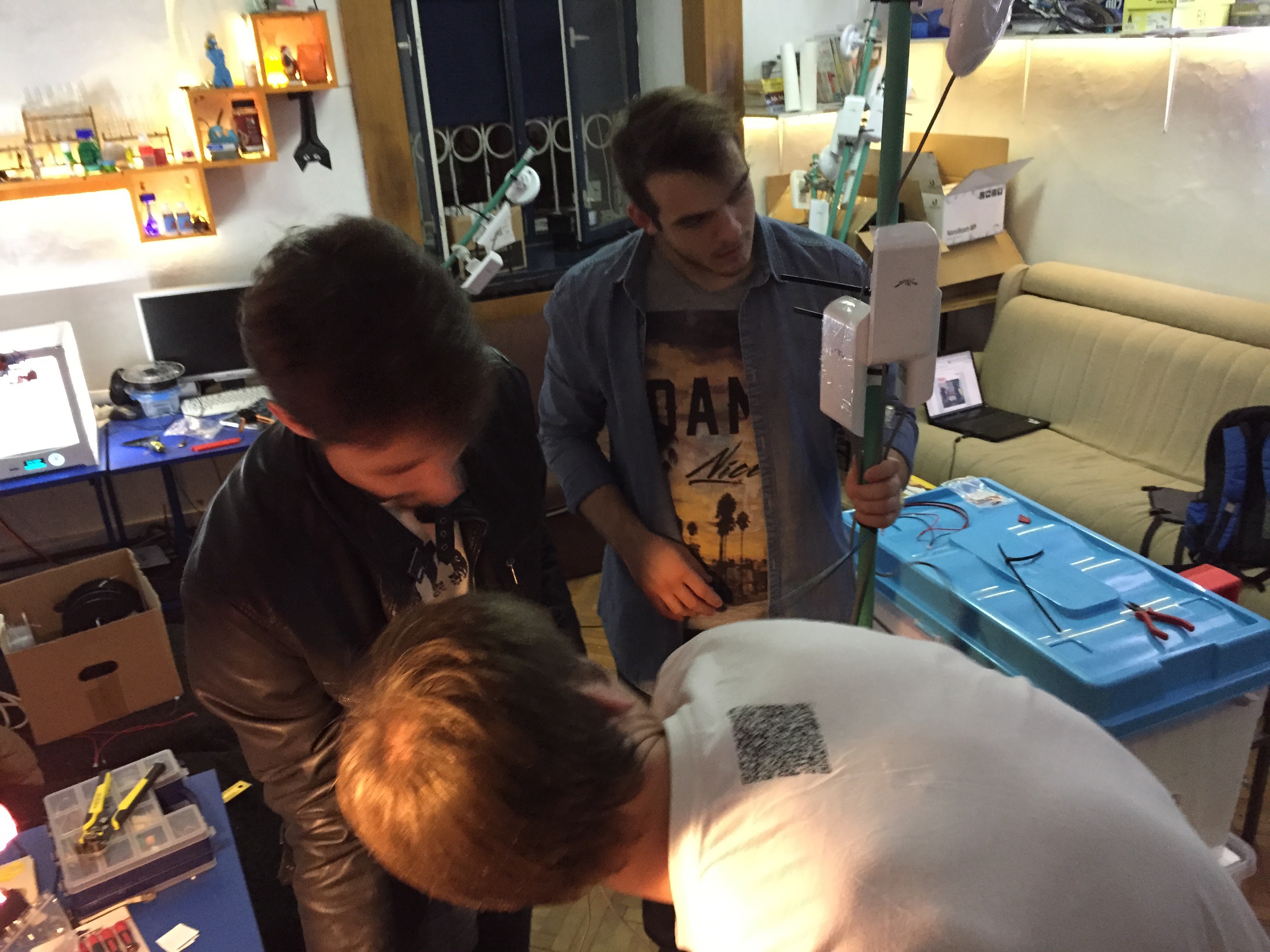
Without such great support there is no way we could have made this happen!
We managed to get four complete kits build, tested, connected to see if Arduino was collecting and sending data, and once everything was done disassembled it and prepared it for transport.
Hope you have life insurance...
In order to deploy wifi hotspots and diy power system we needed to climp 20m high towers that were very rusty because they haven't been used or maintained for over 20 years.
In order to climb these towers I hired professional climber who trained me before to climb building, but this was something else, and much harder.
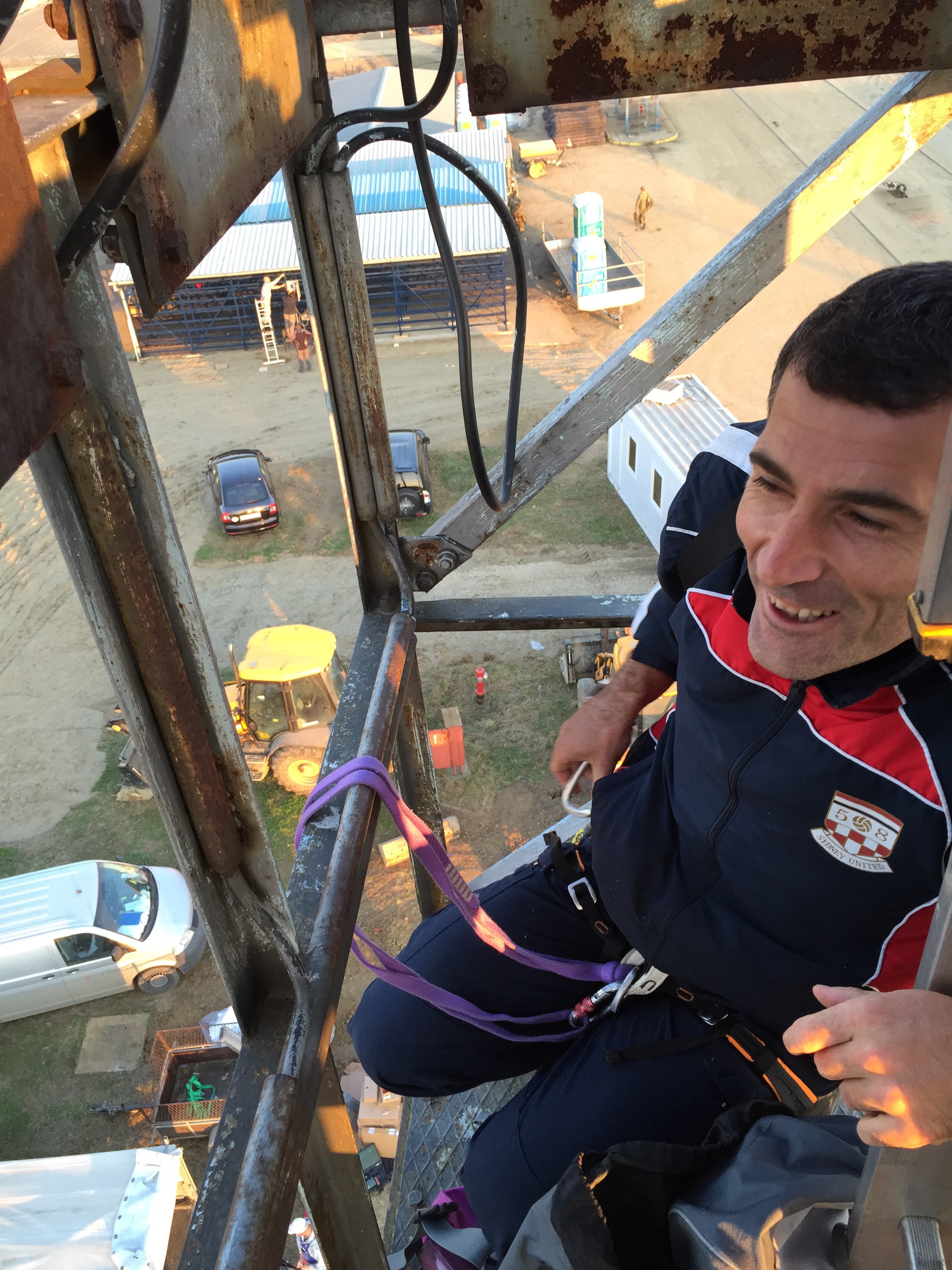
Once we climbed up we were very happy :) But then we remembered that we also need to bring up all that equipment we prepared...
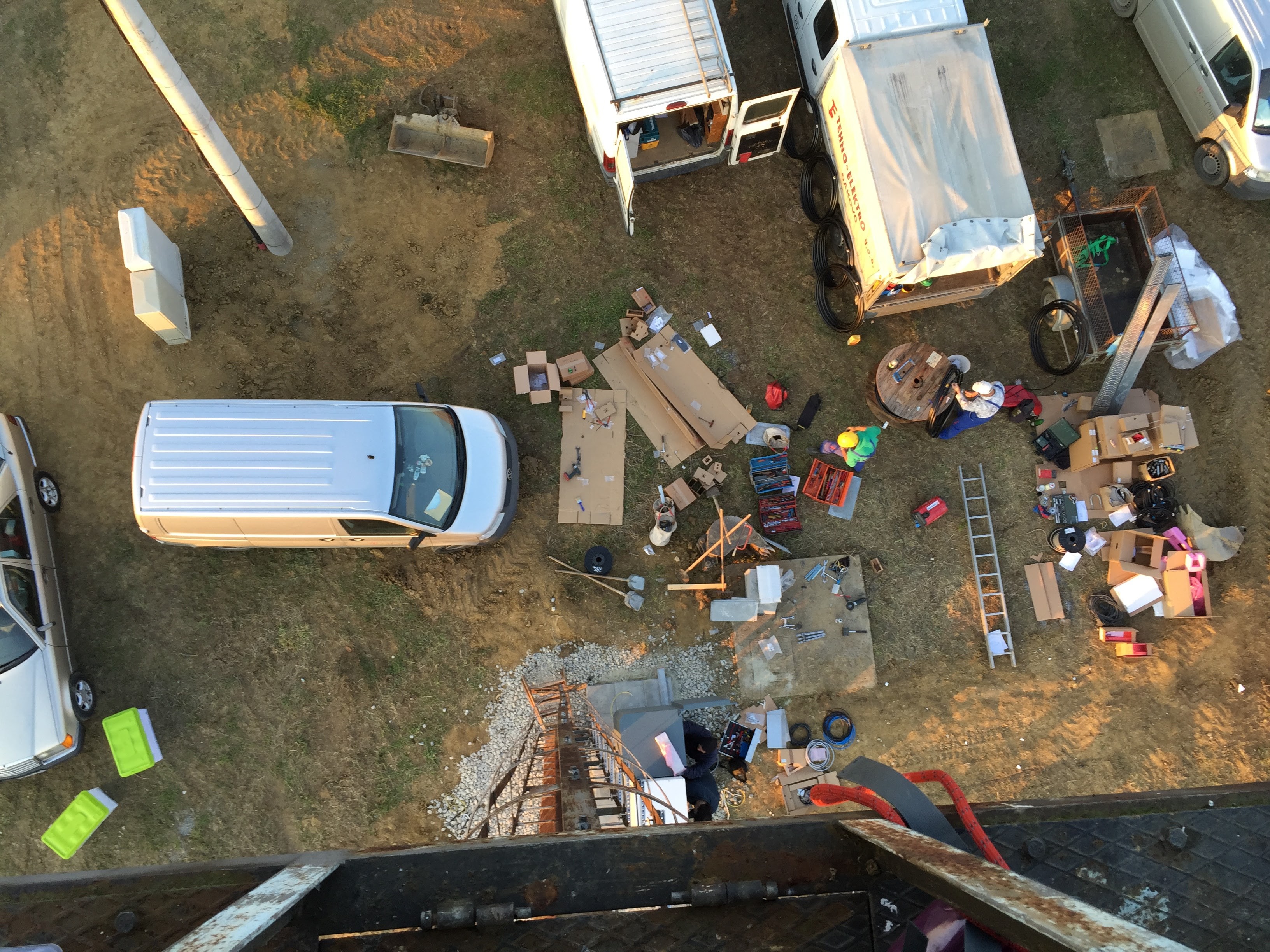
So to bring up all devices, connect them and install them on all four light poles it took us 6 hours of non stop work. We were totally exhausted after that, but also very proud of what we acieved.
 Valent Turkovic
Valent Turkovic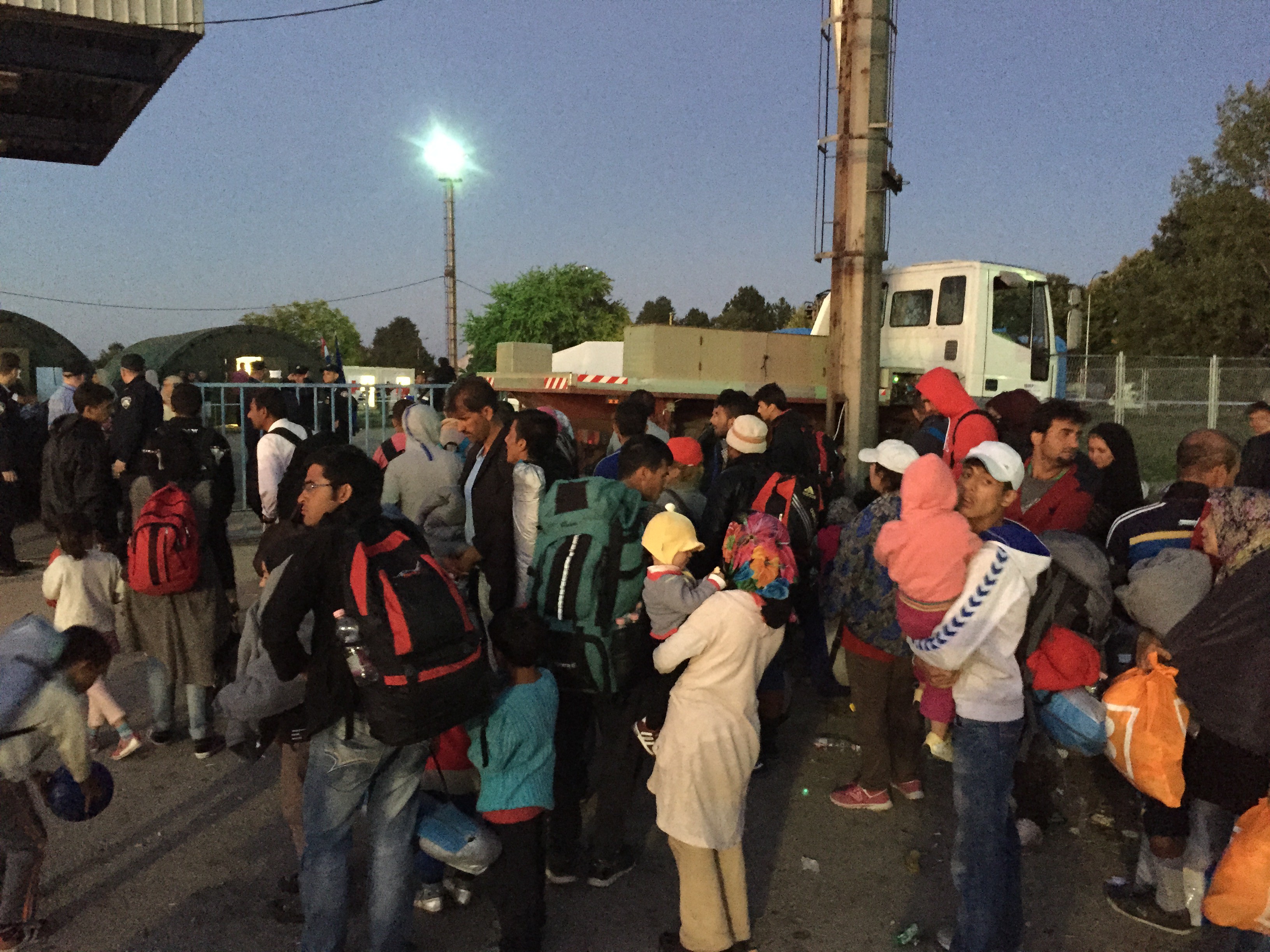

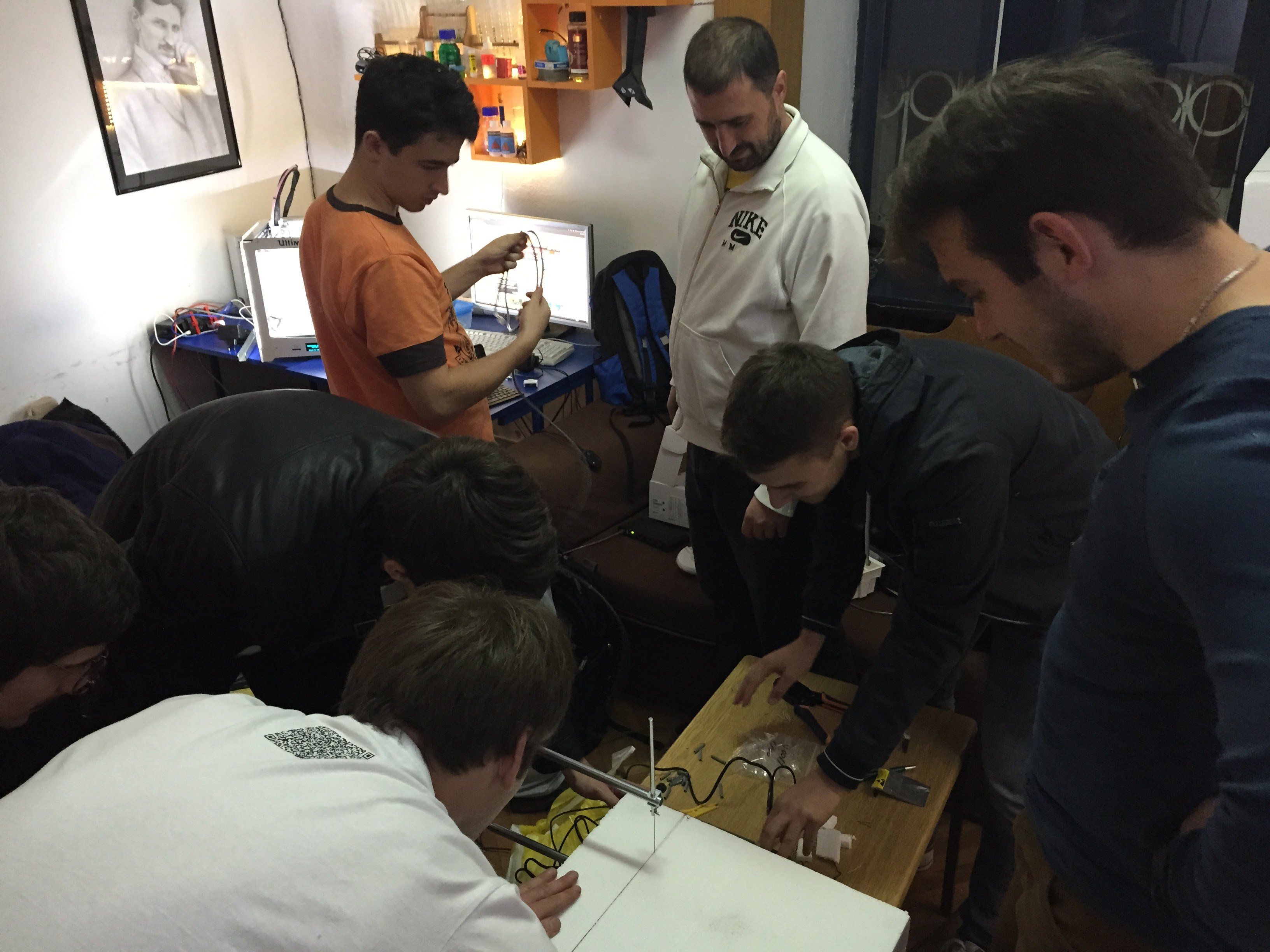
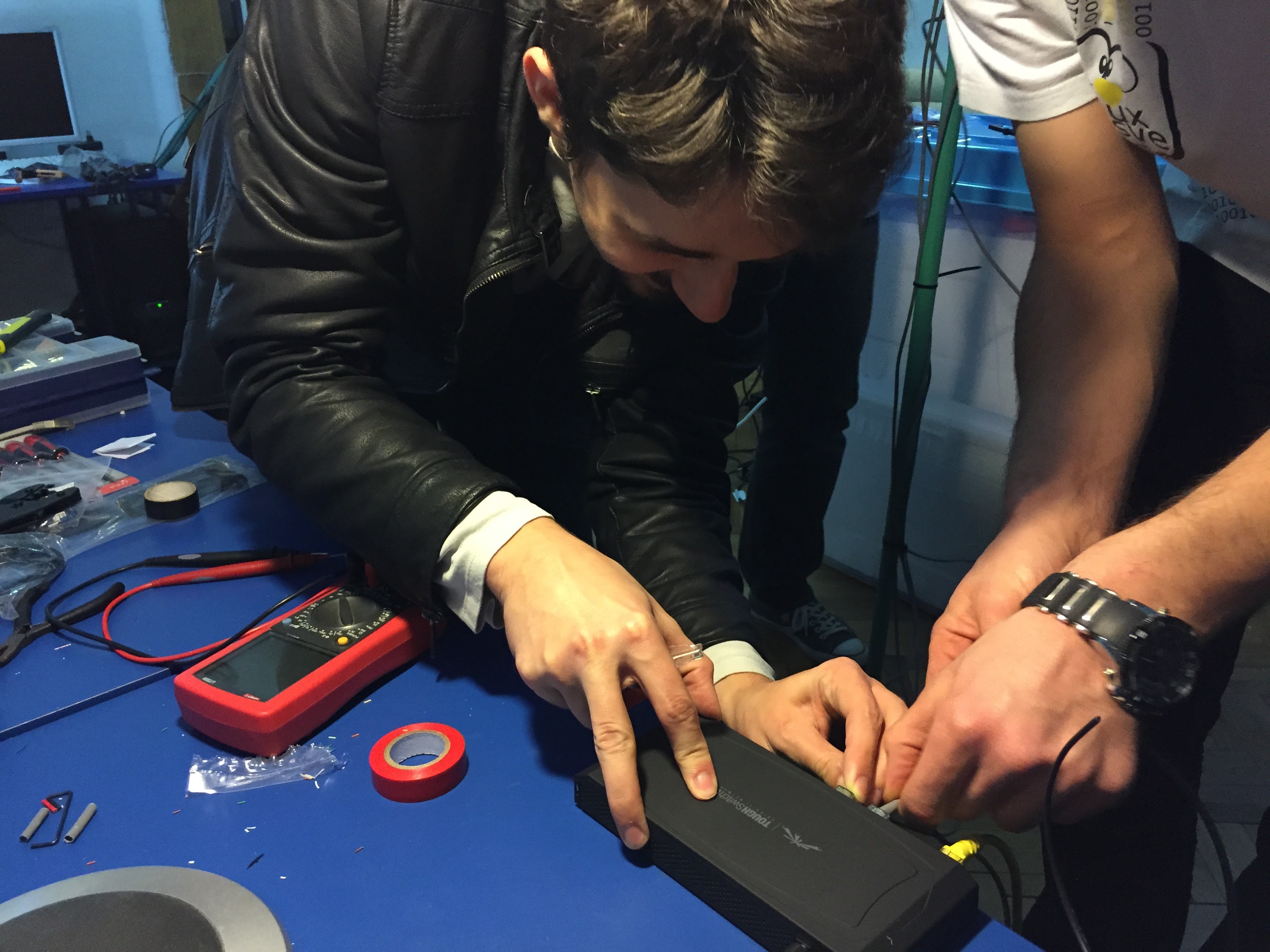
Discussions
Become a Hackaday.io Member
Create an account to leave a comment. Already have an account? Log In.